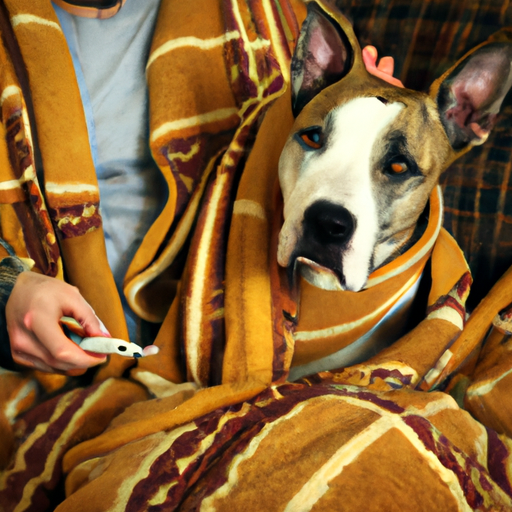The Sixth Sense of Dogs
In your role as a caregiver, you’re often tuned into the needs of others. But did you know your dog might also be aware of your health status? Dogs have an instinctual ability to sense changes in their human companions. This ability, often referred to as a “sixth sense,” is largely attributed to their extraordinary sense of smell, which is estimated to be between 10,000 to 100,000 times more sensitive than ours.
The Canine Superpower: Sense of Smell
Dogs perceive the world primarily through their noses. They can detect minute changes in scent, which can be biological markers of various health conditions including:
- Cancer
- Diabetes
- Seizures
- Migraines
While research is still ongoing, anecdotal evidence suggests dogs can detect these conditions, often before medical tests do.
Dogs’ Behavioral Changes When You’re Unwell
When you’re not feeling well, you may notice some changes in your dog’s behavior. These changes can include:
- Increased attentiveness or clinginess
- Unusual calmness or quietness
- Frequent checking-in or ‘nose nudges’
These behaviors are your dog’s way of showing concern and providing comfort.
How Dogs Are Trained to Detect Illness
Some dogs are professionally trained to detect illnesses. The training process often involves:
| Steps | Description |
|---|---|
| 1. Introduction to scents | Dogs are introduced to the specific scent of the illness. |
| 2. Reward system | Positive reinforcement is used to encourage dogs to react to the scent. |
| 3. Advanced Training | Dogs are trained to alert their owners or caregivers when they detect the scent. |
What to Do if Your Dog Shows Concern
If your dog shows signs of concern, it’s important to take them seriously. This doesn’t necessarily mean you’re gravely ill, but it’s worth paying attention to your health. Consult with a healthcare professional if needed.
FAQ
Q: Can my dog really detect illness?
A: While research is ongoing, there is substantial evidence suggesting dogs can detect certain illnesses.
Q: How can I tell if my dog is trying to alert me about my health?
A: Look for changes in their behavior such as increased attentiveness, unusual calmness, or frequent checking-in.
Q: What should I do if my dog shows signs of concern?
A: It’s always best to consult with a healthcare professional if you have health concerns.



